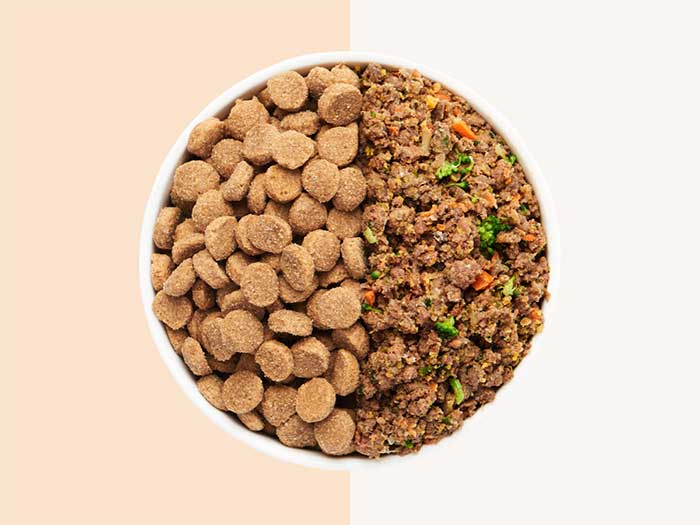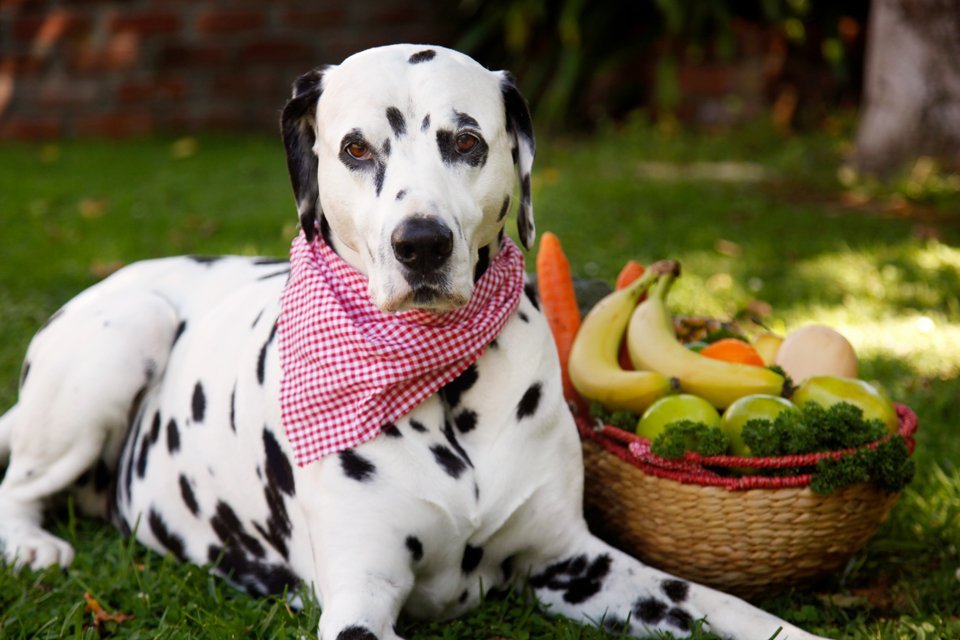Did you know that Dalmatians have unique dietary needs that set them apart from other dog breeds? These beautiful spotted dogs require a special kind of nutrition to keep them healthy and maintain their trademark sleek coats.
Dalmatians have a predisposition to urinary issues and can be prone to forming kidney stones. This means their diet needs to be carefully balanced with low levels of purines and a higher amount of water. Commercial dog foods designed specifically for Dalmatians often contain special ingredients to help prevent the formation of urinary stones. A balanced and appropriate diet with the right nutrients is crucial for the overall well-being of these distinctive dogs, ensuring they live a long and healthy life.

What Food Does a Dalmatian Eat?
Are you considering getting a Dalmatian as a pet? One of the most important things to consider is what food to feed them. Dalmatians have specific dietary needs, and providing them with a well-balanced diet is crucial for their health and well-being. In this article, we will explore the recommended food for Dalmatians, including their nutritional requirements, feeding guidelines, and tips for maintaining a healthy diet for your furry friend.
The Nutritional Needs of Dalmatians
Dalmatians have unique nutritional requirements due to their genetic predisposition for urinary stones. They are prone to developing urinary stones, specifically urate stones, which can be painful and cause urinary tract problems. To prevent the formation of these stones, it is important to feed your Dalmatian a low-purine diet, as purines are metabolized into uric acid, which can contribute to stone formation.
Avoiding foods that are high in purines, such as organ meats, is essential. Instead, opt for commercial dog foods that are specifically formulated for Dalmatians or dogs with urinary stone issues. These foods are typically low in purines and have balanced levels of other nutrients to support your Dalmatian’s overall health.
In addition to a low-purine diet, Dalmatians also require a good balance of protein, carbohydrates, fats, vitamins, and minerals. Provide your Dalmatian with high-quality dog food that meets the standards of the Association of American Feed Control Officials (AAFCO). This ensures that your dog is receiving all the necessary nutrients in the appropriate amounts.
Feeding Guidelines for Dalmatians
Feeding your Dalmatian the right amount of food is crucial to maintaining their weight and overall health. The exact amount of food will depend on factors such as age, weight, activity level, and metabolism. It is always recommended to consult with your veterinarian to determine the appropriate portion size for your specific Dalmatian.
Generally, adult Dalmatians should be fed twice a day, while puppies may require more frequent meals. Divide their daily portion into two meals to promote better digestion and prevent bloating. Pay attention to your Dalmatian’s body condition and adjust the amount of food accordingly. If they are gaining weight, reduce the portion size, and if they are losing weight or seem hungry, increase it.
It’s important to note that Dalmatians should have access to fresh water at all times. Hydration is key for their urinary health and overall well-being. Monitor their water intake to ensure they are drinking enough, especially in warmer weather or after exercise.
Tips for a Healthy Diet
Aside from providing the right food and portion sizes, there are a few additional tips to keep in mind to ensure your Dalmatian maintains a healthy diet:
- Limit treats: While it’s tempting to spoil your Dalmatian with treats, excessive treats can lead to weight gain and imbalance in their diet. Choose healthy treats specifically made for Dalmatians and limit them to avoid any negative effects on their health.
- Exercise regularly: Alongside a balanced diet, regular exercise is essential for your Dalmatian’s overall well-being. Engage in activities that keep them active and mentally stimulated. This will help them maintain a healthy weight and support their overall health.
- Regular veterinary check-ups: Schedule regular check-ups with your veterinarian to ensure your Dalmatian’s health is monitored. They can provide tailored advice and guidance specific to your dog’s needs, including dietary recommendations.
Choosing the Right Food for Your Dalmatian
When it comes to choosing the right food for your Dalmatian, there are a few options to consider:
Dry Kibble
Dry kibble is a popular choice for many Dalmatian owners. It offers convenience, a longer shelf life, and helps maintain dental health. Look for a brand that offers a low-purine formula specifically designed for Dalmatians or urinary health. Ensure the kibble is appropriate for your Dalmatian’s age and size.
Wet Food
Wet food can be a good option for Dalmatians who have difficulty chewing or prefer a softer texture. It can also be mixed with dry kibble for added variety. Choose a wet food that meets your Dalmatian’s nutritional needs and is low in purines.
Homemade Diets
If you prefer to prepare your Dalmatian’s meals at home, it is important to consult with a veterinary nutritionist to ensure you are meeting their specific dietary requirements. Homemade diets need to be well-balanced and carefully formulated to avoid any nutritional deficiencies.
Raw Diets
Raw diets, also known as BARF (Biologically Appropriate Raw Food) or PMR (Prey Model Raw), have gained popularity in recent years. While proponents claim that raw diets offer numerous health benefits, it is crucial to thoroughly research and consult with your veterinarian before transitioning your Dalmatian to a raw diet. Balance is key to ensure your pet receives all necessary nutrients, and there are potential risks involved in handling raw meat.
Dalmatians and Food Allergies
Like any other breed, Dalmatians can also develop food allergies or sensitivities. If you notice signs such as excessive itching, skin rashes, gastrointestinal issues, or ear infections, it is recommended to consult with your veterinarian. They can help identify the specific ingredient causing the allergy using elimination diets or allergy testing. Switching to a hypoallergenic or limited ingredient diet may be necessary to alleviate your Dalmatian’s symptoms.
Conclusion
Ensuring your Dalmatian has a well-balanced diet is crucial for their health and happiness. Remember to provide them with a low-purine diet to prevent urinary stone formation, monitor their portion sizes, and offer a variety of healthy treats. Regular exercise, veterinary check-ups, and a mindful approach to their nutrition will help keep your Dalmatian in optimal health. By following these guidelines and consulting with your veterinarian, you can provide your Dalmatian with the best possible diet for a long and healthy life.
Key Takeaways: What Food Does a Dalmatian Eat?
- Dalmatians have unique dietary needs
- A high-quality, protein-rich dog food is essential
- Raw food or homemade diets can be beneficial
- Avoid foods with excessive purine content
- Consult with a veterinarian for specific dietary recommendations
Frequently Asked Questions
Curious about what food a Dalmatian should eat? Look no further! Below are some common questions and answers to guide you in nourishing your furry friend.
How should I choose the right food for my Dalmatian?
When selecting food for your Dalmatian, remember to prioritize their unique dietary needs. Due to their predisposition to urinary issues, it’s crucial to provide a low-purine diet. Look for dog foods explicitly labeled as “low-purine” or consult your veterinarian for specific recommendations. Additionally, opt for high-quality dog food brands that contain essential nutrients to support your Dalmatian’s overall health and well-being.
Consider the age of your Dalmatian as well. Puppies have different nutritional requirements compared to adult dogs, so choose food formulated specifically for their growth and development. Regularly consult with your vet to ensure you’re feeding your Dalmatian the appropriate food for their unique needs.
Should I feed my Dalmatian a homemade or commercial diet?
While homemade diets can be appealing, it’s essential to consult with a veterinarian or veterinary nutritionist before embarking on one. Dalmatians have specific dietary requirements, particularly regarding purine levels. Developing a balanced homemade diet that meets these requirements can be challenging without professional guidance.
Commercial diets often provide a more convenient and nutritionally balanced option for Dalmatians. Look for high-quality dog food brands that specifically cater to the needs of Dalmatians and consult with your vet to ensure you’re making the best choice for your furry friend.
Are there any foods that Dalmatians should avoid?
Avoid feeding your Dalmatian certain food items that are high in purines, such as organ meats, legumes, and some types of fish like anchovies or sardines. These foods can increase the risk of urinary issues in Dalmatians, such as the development of bladder stones. It’s best to consult your veterinarian for a comprehensive list of foods to avoid to keep your Dalmatian healthy and happy.
Additionally, remember that some human foods can be toxic to dogs, like chocolate, onions, garlic, and grapes. Keep these foods far away from your Dalmatian’s reach to prevent any potential harm.
How often should I feed my adult Dalmatian?
Adult Dalmatians typically thrive on two meals a day. Divide their daily recommended food portion into two equal servings. Consistency in meal timing is key, as a regular feeding schedule helps maintain your Dalmatian’s digestive system and overall well-being.
However, it’s crucial to note that individual Dalmatians may have different dietary needs based on factors such as age, activity level, and overall health. Consulting with your veterinarian will ensure you establish the most suitable feeding routine for your specific Dalmatian.
Can I provide additional treats or snacks to my Dalmatian?
Yes, you can offer your Dalmatian treats or snacks, but with caution. Treats should be given in moderation to avoid overfeeding or causing nutritional imbalances. Look for low-purine dog treats that are specifically formulated for Dalmatians or consult with your veterinarian for appropriate options. Always be mindful of the total calorie intake to maintain a healthy weight for your furry friend.
Remember, treats should not comprise more than 10% of your Dalmatian’s daily calorie intake. Balancing proper nutrition with occasional treats enhances the bond with your Dalmatian while ensuring their overall health and well-being.

5 best foods for your Dalmatian Dog #Dalmatiandog
Summary
So, what food does a dalmatian eat? Dalmatians should be fed a balanced diet of high-quality dog food, with a focus on lean proteins like chicken or fish. It’s important to avoid foods that can cause health issues for this breed, such as fatty meats, dairy products, and foods with high levels of purines. Additionally, dalmatians have a higher risk of developing urinary tract issues, so it’s crucial to provide them with a diet that promotes urinary health and hydration. Remember to always consult with a veterinarian for personalized dietary recommendations for your dalmatian.
In conclusion, a dalmatian’s diet should consist of nutritious, lean proteins while avoiding certain foods. It’s also important to pay attention to their urinary health. By following these guidelines and consulting with a vet, you can ensure your dalmatian stays healthy and happy!
